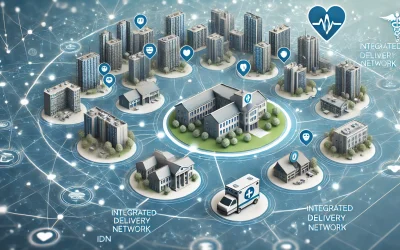Are hospitals and healthcare operated in the same way they used to in the past? Like a century back? The answer is NO. The healthcare sector has outdone the conventional method and upgraded the department to new grades in terms of research, strategic plans, and patient care. The hospitals thought of only providing care to patients, but they have achieved the status of a colossal enterprise and a principal source for the generation of revenue. How did they become efficient in a short period? One of the tools that lead them to where they are is a Group Purchasing Organization.
Understanding what a GPO is?
A group purchasing organization (GPO) is an entity that helps healthcare providers — such as hospitals, nursing homes, and home health agencies — realize savings and efficiencies by aggregating purchasing volume and using that leverage to negotiate discounts with manufacturers, distributors, and other vendors. 1
A GPO does not purchase any product or sell it. GPOs act to negotiate contracts and reduce prices. GPO is described as a program that allows different businesses with the same stakes to join this platform and benefit from common interests. The GPOs negotiate on behalf of these businesses with top-notch suppliers. They pool their purchases to benefit from favorable conditions (price, payment terms, delivery, etc). Thanks to their combined purchasing power!
WHAT DO GPOs DO FOR HOSPITALS?
COST SAVINGS
There are several vendors providing healthcare supplies at different costs to different healthcare units. The prices vary widely which increases the range of costs. GPO does a joint negotiation for its members, and through combined purchasing power, a particular product is available at the same price to all members of that GPO.
TIME SAVINGS
Each purchase and sale requires a series of negotiations and agreements to come to final terms. For healthcare supplies, there would be hundreds of negotiations over every product leading to poor time management. GPOs efficiently manage to save time by conferring on the behalf of their members, saving valuable time.
ENHANCED OUTPUT
When there is a consistent uninterrupted supply of healthcare tools, medical devices, the workload on administration is decreased. GPOs enable the new available technologies to be distributed and used by healthcare systems leading to uplift and better proficiency of these organizations. The healthcare systems do not have to face unplanned shortages, which can happen all the time in a market.
SYSTEMATIC COSTINGS
The provision of all purchases in bulk and combined purchases helps the hospitals to cut out a significant portion of the costs. There is less hassle about negotiations and fluctuations in the costs of products. GPOs have the responsibility to look around the market for any variations, increase, and decrease in the cost regarding the products. It helps healthcare to do their long-term planning without having a significant threat about price fluctuations.
DYNAMIC FORCE FOR SMALLER BUSINESS
Being attached to a GPO gives smaller businesses and secondary healthcare clinics much more influence over the suppliers, giving them opportunities to improve their businesses.




